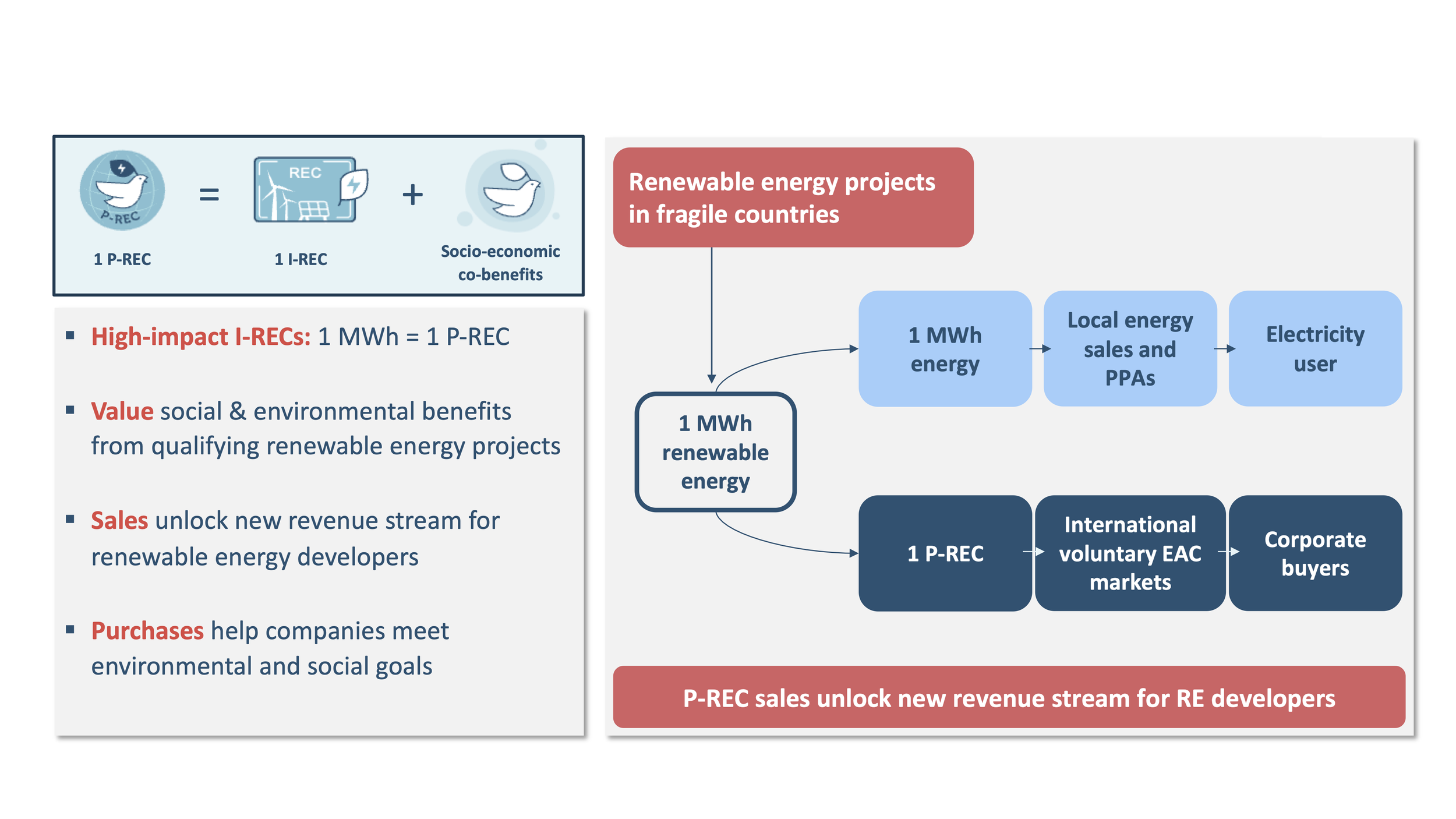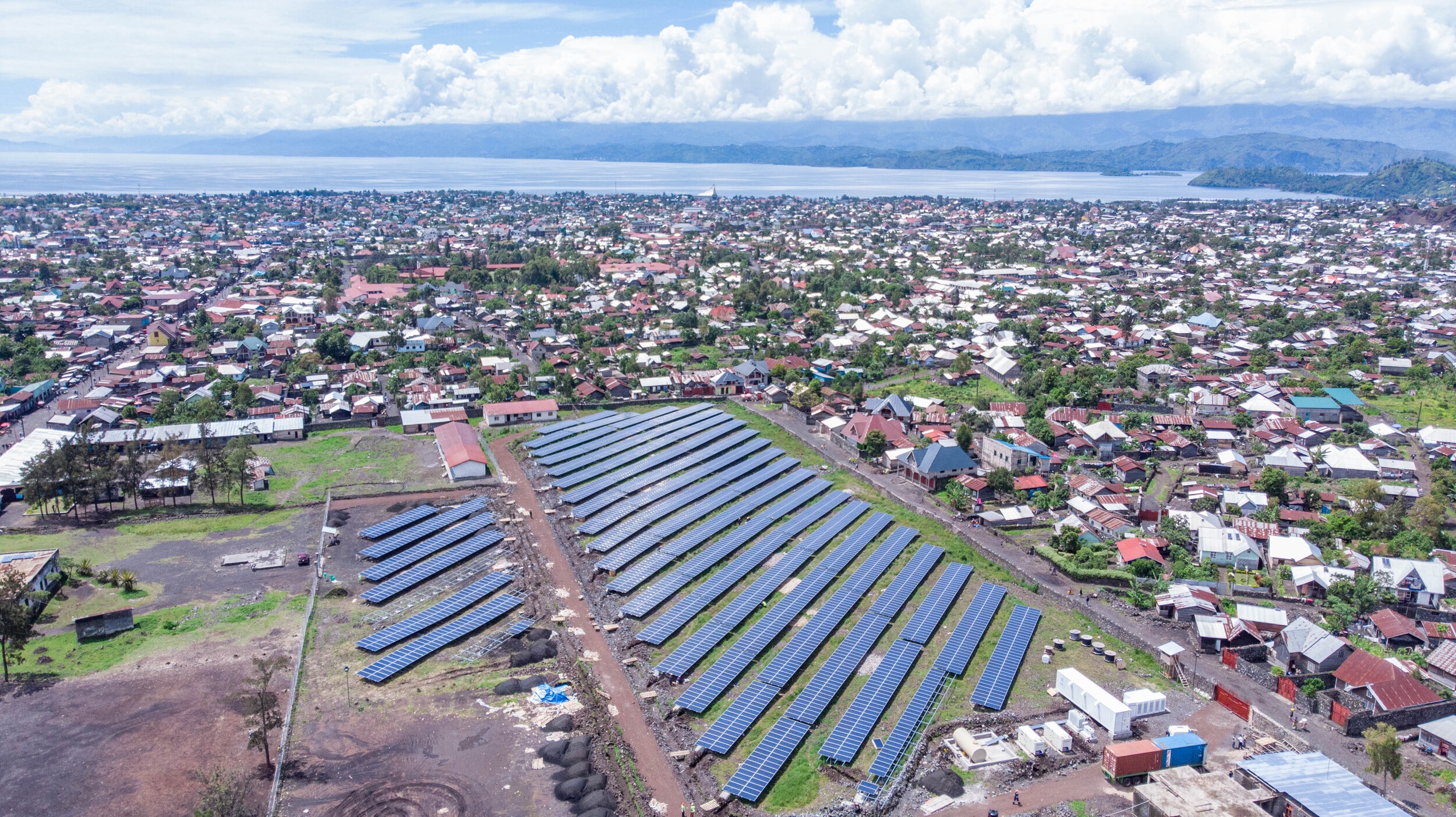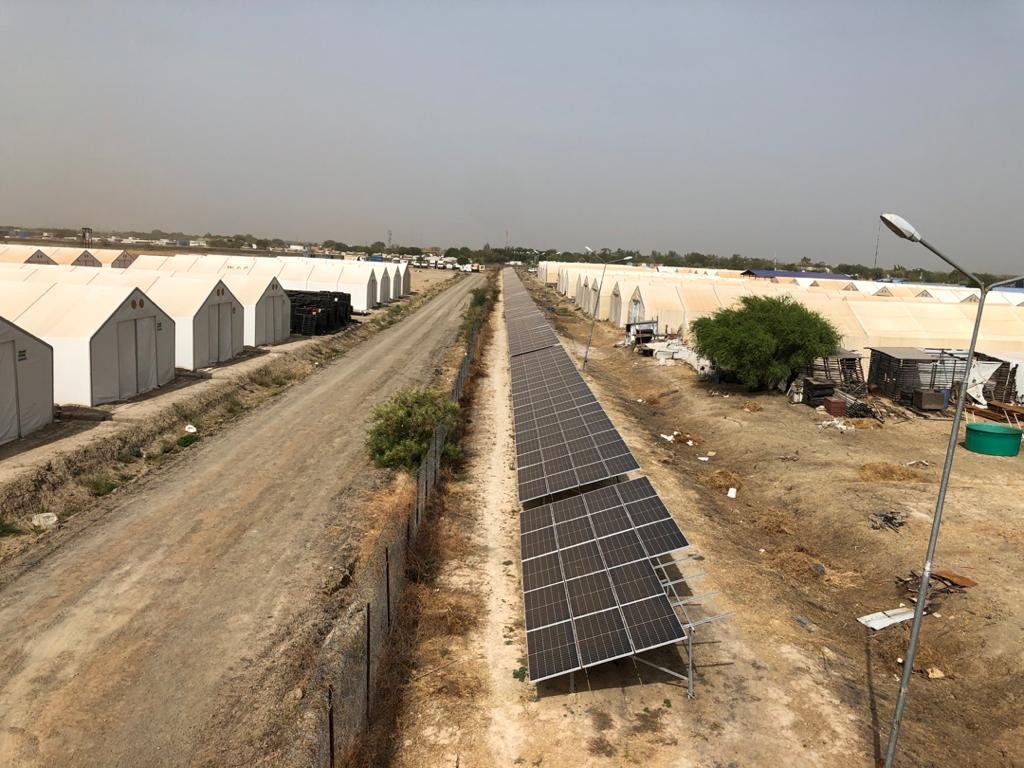Overview
The renewable energy revolution is sweeping much of the world, yet investment is limited in the countries most vulnerable to violent conflict, environmental impacts, and energy poverty. We believe that renewable energy delivers a range of positive outcomes that contribute to building peaceful, stable societies, but the communities with the most to gain are losing out on the benefits of the renewable energy boom. Energy Peace Partners developed the Peace Renewable Energy Credit (P-REC) in order to unlock new renewable energy investment that extends the promise of the renewable energy revolution to the planet’s most vulnerable communities. At a time of accelerating renewable energy growth and corporate commitments to environmental and social goals, P-RECs connect voluntary renewable energy markets with parts of the world where a greener development path can have a transformative social impact.
Peace Renewable Energy Credit
An Energy Attribute Certificate (EAC) is an internationally-traded virtual commodity that represents 1 megawatt hour (MWh) of renewable energy generated. Governments, utilities, companies, and individuals purchase EACs in order to meet mandatory or voluntary sustainability goals, while EACs provide renewable energy developers an additional option for monetizing generation. P-RECs extend the USD 1 billion international market in EACs to fragile, energy poor countries. They provide a recognized market mechanism that allows developers to monetize renewable energy generated from new projects in target countries, where access to affordable finance remains a challenge. At the same time, P-RECs offer corporate buyers entry points to fund high impact projects.
P-RECs are issued under the International REC (I-REC) Standard, the dominant tracking system for international EACs, known as I-RECs. P-RECs are I-RECs with an impact label from Energy Peace Partners certifying the environmental and social benefits associated with qualifying projects in fragile settings. To date EPP has been authorized as the I-REC country issuer in the Democratic Republic of Congo, South Sudan, Somalia, Chad, Ethiopia, Sierra Leone, and Haiti. For developers interested in issuing I-RECs from these countries, please click here for more information.
How P-RECs Work
Learn more about how P-RECs work in this FAQ
Integrate P-RECs into your RFP bids and responses with this template P-REC language for corporate buyer RFP processes
Advisory firms can integrate P-RECs into buyer client discussions and strategies using this guide
Accounting & Best Practices for P-RECs
EPP develops guidance and insights to help P-REC buyers understand how to incorporate P-RECs into their annual environmental disclosures. For example, EPP developed new guidance that clarifies how and where companies can report P-RECs across the fast-evolving landscape of regulated and voluntary environmental disclosure frameworks.
EPP also produces research to inform wider industry conversations about the impact of renewable energy procurement, including but not limited to P-RECs. For example, EPP submitted five pieces of research-based evidence and comments to inform SBTi’s “Call for Evidence on the effectiveness of Environmental Attribute Certificates.”
Who benefits from P-RECs?
P-REC transactions bring together buyers and sellers whose engagement results in the deployment of new renewable energy capacity in local communities:
Developers
Renewable energy developers operating in fragile, energy poor countries sell P-RECs from qualifying projects in order to fund and sustain first-time electrification projects such as the construction of mini-grids, installation of community street lights, and electrification of public health facilities.
If you are a developer interested in issuing P-RECs from your projects please click below for our pre-screening application:
Local Communities
 New renewable energy projects in fragile settings enable a range of social, economic, and environmental benefits for local communities. These include creating new economic opportunities; powering health and education facilities; improving nighttime safety and security; providing opportunities for cooperation, reducing harmful emissions, and reducing revenues from illicit charcoal or diesel markets. These high impact co-benefits can contribute to building more peaceful, stable societies and differentiate P-RECs from traditional EACs currently on the market.
New renewable energy projects in fragile settings enable a range of social, economic, and environmental benefits for local communities. These include creating new economic opportunities; powering health and education facilities; improving nighttime safety and security; providing opportunities for cooperation, reducing harmful emissions, and reducing revenues from illicit charcoal or diesel markets. These high impact co-benefits can contribute to building more peaceful, stable societies and differentiate P-RECs from traditional EACs currently on the market.
P-REC Buyers
P-RECs represent a high-impact voluntary renewable energy procurement option. Corporate buyers purchase P-RECs in order to meet sustainability and/or social responsibility goals. Companies can also procure P-RECs to achieve their purpose-driven, next generation impact goals.
P-REC Sellers
EPP developed the “Experienced P-REC Seller” distinction to help buyers identify advisory firms that can support them with understanding the role of P-RECs in their clean energy-related impact strategy and with executing P-REC transactions efficiently.








